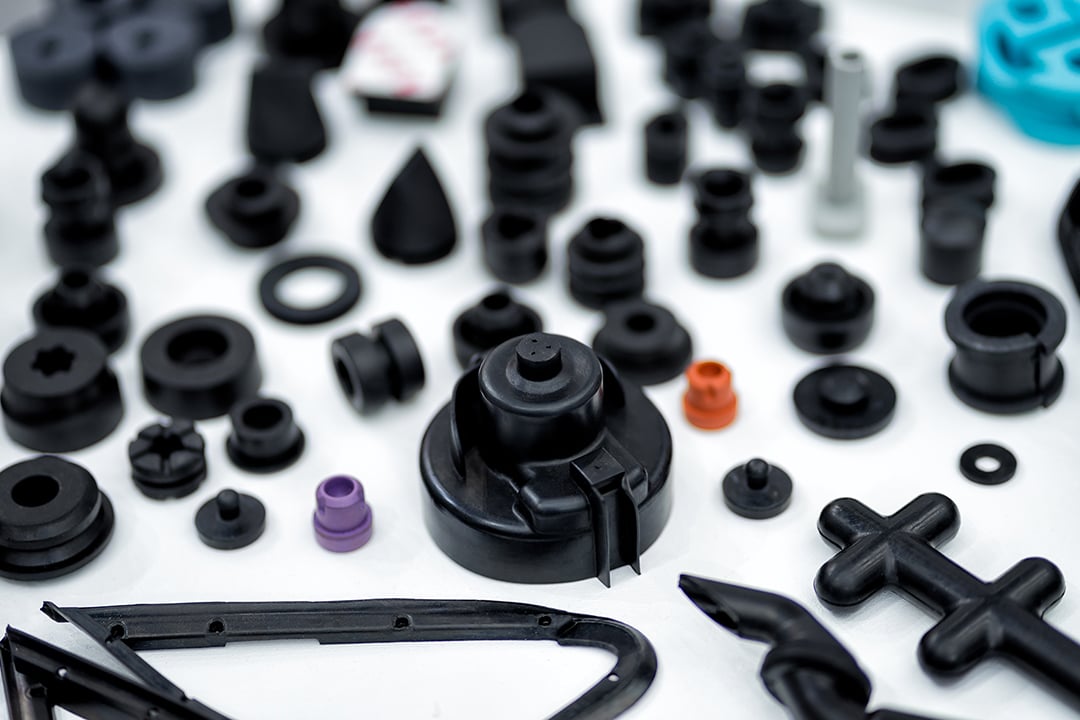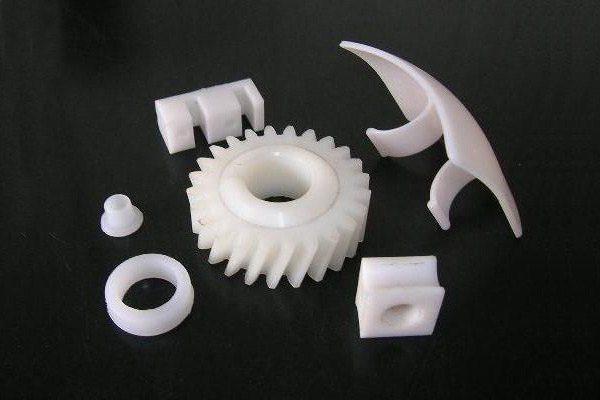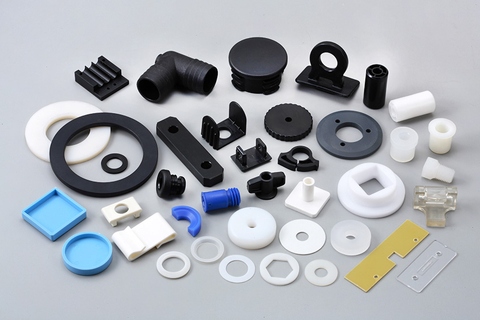Product Description
HangZhou CHINAMFG Rubber & Plastic Products Co., Ltd.
Leading manufacturer of custom CHINAMFG parts with ISO9001 certification. Specializing in industrial rubber products and silicone seals.
| Technical Specification | |
| Material | NBR, NR, EPDM, FVMQ,HNBR,LSR,CR,Silicon, PU,SBR,IIR |
| Size/Color | Customized |
| Hardness | 20-90 Shore A |
| Processing Way | Compression, injection, injection transfer, extrusion, silicone liquid injection |
| Certificates | SGS, RoHS. Reach |
| Packing | PE plastic bags then to the carton / as customized |
| Payment | T/T, Paypal, Western Union,Payoneer |
| MOQ | 5000 PCS |
| Shipping Method | SEA,AIR,DHL,UPS,FEDEX,TNT, etc. |
| Delivery Time | 7 days for prototype tooling & samples, 14 days for production mold, 14-28 days for MOQ |
| Full Name of Material | Nitrile Rubber (Buna-N/NBR) Natural Rubber(NR) Ethylene-propylene (EPR, EPDM) Fluorocarbon (FKM/FPM) Fluorosilicone(FVMQ) Hydrogenated Nitrile (HNBR) Liquid Silicone Rubber(LSR) Neoprene Rubber(CR) Silicone Rubber Polyurethane(PU) Styrene-butadiene Rubber (SBR) Butyl Rubber(IIR) |
| Mold | Molding Process | Injection molding, mold processing |
| Mould type | Precision Injection Mold, compression molds | |
| Machines | 350T vacuum pressing machine and other pressing machine at 300T,250T and so on | |
| Tooling equipment | Rubber tension tester, Rubber vulcanization instrument, Durometer, calipers, ageing oven | |
| Cavity | 1~400 cavities | |
| Mould Life | 300,000~1,000,000 times | |
| Production | Production capacity | finish each mold of product in 3 minutes and working on 3 shifts within 24 hours |
| Mold lead time | 15~35 days | |
| Sample lead time | 3~5 days | |
| Production time | usually 15~30 days, should be confirmed before order | |
| Loading port | zhong shan | |
HangZhou CHINAMFG Rubber & Plastic Products Co., Ltd. specializes in manufacturing precision sanitary rubber products with over 10 years of experience. Our product range includes rubber gaskets, grommets, diaphragms, sealing valves, stoppers, plugs, caps, and custom-made seal rings. These custom-molded rubber products are widely used in mechanical equipment for reliable sealing and damping effects. In the chemical industry, our products are utilized for pipeline sealing and corrosion resistance, ensuring safe and efficient production processes.
Explore a diverse selection of premium rubber products, including custom molded seals and industrial rubber goods, at HangZhou CHINAMFG Rubber & Plastic Products Co., Ltd. As a trusted manufacturer and supplier of custom CHINAMFG components, we excel in delivering high-quality solutions for all your rubber product requirements. Reach out to us today for innovative and long-lasting rubber products tailored to your exact specifications.
About Us
At HangZhou CHINAMFG Rubber & Plastic Products Co., Ltd., we are a reputable rubber factory with extensive experience. Our production base spans 20,000 square CHINAMFG and includes 2 floors of 100,000-class dust-free workshops, staffed by over 20 senior engineers.
We specialize in advising customers on the most suitable rubber, silicone, or plastic molding parts for their applications. Our engineers collaborate closely with design teams to ensure products meet specifications. Material selection expertise includes NR, SBR, EPDM, SIR, CR, IIR, HNBR, FKM, and PU.
With over 100 patents in the industry, we continuously integrate new technologies to meet evolving customer needs. Our ISO9001 certification and industry-related quality system certifications (ISO13485, SIRAICTl) guarantee a one-stop solution, competitive pricing, and professional service.
Our thorough ERP system monitors raw material tracking, project R&D, quality inspection, and warehouse inventory, reflecting our commitment to customer satisfaction. Punctuality, know-how, dedication, and skilled personnel underpin our successful operations.
Our focus on innovation, advanced equipment, and new applications drives mutual success. We look CHINAMFG to partnering with your esteemed company for mutual growth.
| FAQ: | |
| Q:Are you a trader or a manufacturer? | |
| A:We are a trading and manufacturing company with specialized manufacturing factories and trading departments. | |
| Q: How can I get some samples? | |
| A:Please contact us. We are honored to offer you free samples. It will cost some sample charge for custom | |
| designs,but it is refundable when order is up to certain quantity. | |
| Q: What is your terms of payment? | |
| A: 7 days for prototype tooling & samples, 14 days for production mold, 14-28 days for MOQ. | |
| Q: Why choose us? | |
| A: We have professional team with rich experiences and high precision equipment which can guarantee the | |
| product quality, through our scientific management and strict cost control we can offer you the best competitive ! | |
| Welcome to inquire, let’s get started! |
/* January 22, 2571 19:08:37 */!function(){function s(e,r){var a,o={};try{e&&e.split(“,”).forEach(function(e,t){e&&(a=e.match(/(.*?):(.*)$/))&&1
| Type: | Machinery, Industrial Component, Electronic Produc |
|---|---|
| Material: | EPDM, NBR, Silicone, Cr, HNBR, Nr |
| Combination Washer Structure: | A Type |
| Combination Washer Packaging: | Half a Pack |
| Spring Washer Type: | Standard |
| Certification: | ISO9001, RoHS |
| Samples: |
US$ 2/Piece
1 Piece(Min.Order) | |
|---|
| Customization: |
Available
|
|
|---|

What factors influence the design and tooling of injection molded parts for specific applications?
Several factors play a crucial role in influencing the design and tooling of injection molded parts for specific applications. The following are key factors that need to be considered:
1. Functionality and Performance Requirements:
The intended functionality and performance requirements of the part heavily influence its design and tooling. Factors such as strength, durability, dimensional accuracy, chemical resistance, and temperature resistance are essential considerations. The part’s design must be optimized to meet these requirements while ensuring proper functionality and performance in its intended application.
2. Material Selection:
The choice of material for injection molding depends on the specific application and its requirements. Different materials have varying properties, such as strength, flexibility, heat resistance, chemical resistance, and electrical conductivity. The material selection influences the design and tooling considerations, as the part’s geometry and structure must be compatible with the selected material’s properties.
3. Part Complexity and Geometry:
The complexity and geometry of the part significantly impact its design and tooling. Complex parts with intricate features, undercuts, thin walls, or varying thicknesses may require specialized tooling and mold designs. The part’s geometry must be carefully considered to ensure proper mold filling, cooling, ejection, and dimensional stability during the injection molding process.
4. Manufacturing Cost and Efficiency:
The design and tooling of injection molded parts are also influenced by manufacturing cost and efficiency considerations. Design features that reduce material usage, minimize cycle time, and optimize the use of the injection molding machine can help lower production costs. Efficient tooling designs, such as multi-cavity molds or family molds, can increase productivity and reduce per-part costs.
5. Moldability and Mold Design:
The moldability of the part, including factors like draft angles, wall thickness, and gate location, affects the mold design. The part should be designed to facilitate proper flow of molten plastic during injection, ensure uniform cooling, and allow for easy part ejection. The tooling design, such as the number of cavities, gate design, and cooling system, is influenced by the part’s moldability requirements.
6. Regulatory and Industry Standards:
Specific applications, especially in industries like automotive, aerospace, and medical, may have regulatory and industry standards that influence the design and tooling considerations. Compliance with these standards regarding materials, dimensions, safety, and performance requirements is essential and may impact the design choices and tooling specifications.
7. Assembly and Integration:
If the injection molded part needs to be assembled or integrated with other components or systems, the design and tooling must consider the assembly process and requirements. Features such as snap fits, interlocking mechanisms, or specific mating surfacescan be incorporated into the part’s design to facilitate efficient assembly and integration.
8. Aesthetics and Branding:
In consumer products and certain industries, the aesthetic appearance and branding of the part may be crucial. Design considerations such as surface finish, texture, color, and the inclusion of logos or branding elements may be important factors that influence the design and tooling decisions.
Overall, the design and tooling of injection molded parts for specific applications are influenced by a combination of functional requirements, material considerations, part complexity, manufacturing cost and efficiency, moldability, regulatory standards, assembly requirements, and aesthetic factors. It is essential to carefully consider these factors to achieve optimal part design and successful injection molding production.

Are there specific considerations for choosing injection molded parts in applications with varying environmental conditions or industry standards?
Yes, there are specific considerations to keep in mind when choosing injection molded parts for applications with varying environmental conditions or industry standards. These factors play a crucial role in ensuring that the selected parts can withstand the specific operating conditions and meet the required standards. Here’s a detailed explanation of the considerations for choosing injection molded parts in such applications:
1. Material Selection:
The choice of material for injection molded parts is crucial when considering varying environmental conditions or industry standards. Different materials offer varying levels of resistance to factors such as temperature extremes, UV exposure, chemicals, moisture, or mechanical stress. Understanding the specific environmental conditions and industry requirements is essential in selecting a material that can withstand these conditions while meeting the necessary standards for performance, durability, and safety.
2. Temperature Resistance:
In applications with extreme temperature variations, it is important to choose injection molded parts that can withstand the specific temperature range. Some materials, such as engineering thermoplastics, exhibit excellent high-temperature resistance, while others may be more suitable for low-temperature environments. Consideration should also be given to the potential for thermal expansion or contraction, as it can affect the dimensional stability and overall performance of the parts.
3. Chemical Resistance:
In industries where exposure to chemicals is common, it is critical to select injection molded parts that can resist chemical attack and degradation. Different materials have varying levels of chemical resistance, and it is important to choose a material that is compatible with the specific chemicals present in the application environment. Consideration should also be given to factors such as prolonged exposure, concentration, and frequency of contact with chemicals.
4. UV Stability:
For applications exposed to outdoor environments or intense UV radiation, selecting injection molded parts with UV stability is essential. UV radiation can cause material degradation, discoloration, or loss of mechanical properties over time. Materials with UV stabilizers or additives can provide enhanced resistance to UV radiation, ensuring the longevity and performance of the parts in outdoor or UV-exposed applications.
5. Mechanical Strength and Impact Resistance:
In applications where mechanical stress or impact resistance is critical, choosing injection molded parts with the appropriate mechanical properties is important. Materials with high tensile strength, impact resistance, or toughness can ensure that the parts can withstand the required loads, vibrations, or impacts without failure. Consideration should also be given to factors such as fatigue resistance, abrasion resistance, or flexibility, depending on the specific application requirements.
6. Compliance with Industry Standards:
When selecting injection molded parts for applications governed by industry standards or regulations, it is essential to ensure that the chosen parts comply with the required standards. This includes standards for dimensions, tolerances, safety, flammability, electrical properties, or specific performance criteria. Choosing parts that are certified or tested to meet the relevant industry standards helps ensure compliance and reliability in the intended application.
7. Environmental Considerations:
In today’s environmentally conscious landscape, considering the sustainability and environmental impact of injection molded parts is increasingly important. Choosing materials that are recyclable or biodegradable can align with sustainability goals. Additionally, evaluating factors such as energy consumption during manufacturing, waste reduction, or the use of environmentally friendly manufacturing processes can contribute to environmentally responsible choices.
8. Customization and Design Flexibility:
Lastly, the design flexibility and customization options offered by injection molded parts can be advantageous in meeting specific environmental or industry requirements. Injection molding allows for intricate designs, complex geometries, and the incorporation of features such as gaskets, seals, or mounting points. Customization options for color, texture, or surface finish can also be considered to meet specific branding or aesthetic requirements.
Considering these specific considerations when choosing injection molded parts for applications with varying environmental conditions or industry standards ensures that the selected parts are well-suited for their intended use, providing optimal performance, durability, and compliance with the required standards.

Can you explain the advantages of using injection molding for producing parts?
Injection molding offers several advantages as a manufacturing process for producing parts. It is a widely used technique for creating plastic components with high precision, efficiency, and scalability. Here’s a detailed explanation of the advantages of using injection molding:
1. High Precision and Complexity:
Injection molding allows for the production of parts with high precision and intricate details. The molds used in injection molding are capable of creating complex shapes, fine features, and precise dimensions. This level of precision enables the manufacturing of parts with tight tolerances, ensuring consistent quality and fit.
2. Cost-Effective Mass Production:
Injection molding is a highly efficient process suitable for large-scale production. Once the initial setup, including mold design and fabrication, is completed, the manufacturing process can be automated. Injection molding machines can produce parts rapidly and continuously, resulting in fast and cost-effective production of identical parts. The ability to produce parts in high volumes helps reduce per-unit costs, making injection molding economically advantageous for mass production.
3. Material Versatility:
Injection molding supports a wide range of thermoplastic materials, providing versatility in material selection based on the desired properties of the final part. Various types of plastics can be used in injection molding, including commodity plastics, engineering plastics, and high-performance plastics. Different materials can be chosen to achieve specific characteristics such as strength, flexibility, heat resistance, chemical resistance, or transparency.
4. Strength and Durability:
Injection molded parts can exhibit excellent strength and durability. During the injection molding process, the molten material is uniformly distributed within the mold, resulting in consistent mechanical properties throughout the part. This uniformity enhances the structural integrity of the part, making it suitable for applications that require strength and longevity.
5. Minimal Post-Processing:
Injection molded parts often require minimal post-processing. The high precision and quality achieved during the molding process reduce the need for extensive additional machining or finishing operations. The parts typically come out of the mold with the desired shape, surface finish, and dimensional accuracy, reducing time and costs associated with post-processing activities.
6. Design Flexibility:
Injection molding offers significant design flexibility. The process can accommodate complex geometries, intricate details, undercuts, thin walls, and other design features that may be challenging or costly with other manufacturing methods. Designers have the freedom to create parts with unique shapes and functional requirements. Injection molding also allows for the integration of multiple components or features into a single part, reducing assembly requirements and potential points of failure.
7. Rapid Prototyping:
Injection molding is also used for rapid prototyping. By quickly producing functional prototypes using the same process and materials as the final production parts, designers and engineers can evaluate the part’s form, fit, and function early in the development cycle. Rapid prototyping with injection molding enables faster iterations, reduces development time, and helps identify and address design issues before committing to full-scale production.
8. Environmental Considerations:
Injection molding can have environmental advantages compared to other manufacturing processes. The process generates minimal waste as the excess material can be recycled and reused. Injection molded parts also tend to be lightweight, which can contribute to energy savings during transportation and reduce the overall environmental impact.
In summary, injection molding offers several advantages for producing parts. It provides high precision and complexity, cost-effective mass production, material versatility, strength and durability, minimal post-processing requirements, design flexibility, rapid prototyping capabilities, and environmental considerations. These advantages make injection molding a highly desirable manufacturing process for a wide range of industries, enabling the production of high-quality plastic parts efficiently and economically.


editor by CX 2024-04-17